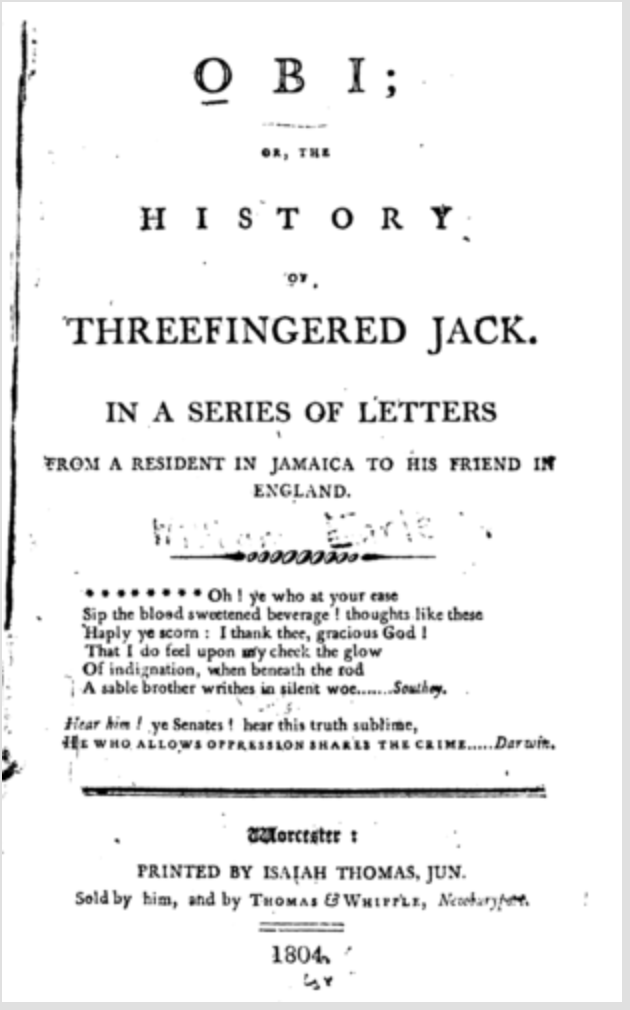Key Text: Obi; or the History of Three-Fingered Jack
William Earle Jr.’s epistolary novel, Obi was first published in 1800 in London. Little is known of Earle outside of his published works, which elicited some controversy in his time.
Obi is a sentimental interpretation of the history of Jack Mansong, a runaway slave and maroon leader in Jamaica. There is a good amount of evidence suggesting that Mansong was an actual person (including newspaper articles and other documentation), however, little is known of the accuracy of Earle's novelistic treatment of Mansong's story. Mansong was also the subject of several additional novels and plays, including works by Benjamin Moseley whose texts can be found in our archive. As project alumna Elizabeth Polcha and Elizabeth Hopwood, point out in the Scholarly Introduction to the text, "Earle drew on numerous sources for details concerning Jamaica, West Africa, and Mansong, including Bryan Edwards’ History, Civil and Commercial, of the British Colonies in the West Indies (1793), Mungo Park’s Travels in the Interior of Africa (1799), and Benjamin Moseley’s A Treatise on Sugar (1799)".
Earle’s epistolary novel begins with the story of Mansong's mother Amri. The tragic story of her capture and further enslavement in Jamaica (which includes her horrific experience of the middle passage, and the subsequent loss of her husband) convinces Mansong to seek revenge on his enslavers, using the "magical art of resistance" that is obeah. Mansong's mission quickly extends not only to seeking revenge for his mother and father's deaths but for all of the enslaved across the island.
Reaction to the novel was both positive to negative, and stirred controversy. Interestingly, the representation of Mansong in the novel both quelled and stoked the fear of plantation owners given the image of both Mansong's unpredictable nature and his intense fights with his attempted capturers.
Title Page from the ECDA's edition of Obi; or the History of Three-Fingered Jack. In a series of letters from a resident in Jamaica to a friend in England.

